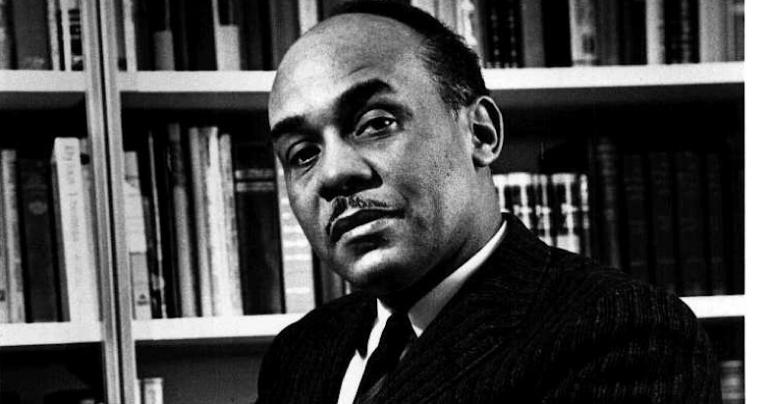 Read Invisible Man.
Read Invisible Man.
Not the HG Wells sort-of-good book, but the work of an authentic American genius: Ralph Ellison. The book has the mythic truth of Steinbeck’s East of Eden and humor that makes Twain’s Huck Finn seem childish.
This is the great American novel, the only completed novel of a genius. As he became an educator and wrote in different genres, there must have been pressure to produce another novel quickly. As the sad case of Harper Lee demonstrates, we can be glad that he resisted, though the often brilliant pieces of his second novel, a book never finished, shows that he did not write another novel because he somehow suddenly lacked the ability to do so. He just never finished what he wanted to say and so never published a half-digested thought. There is value in reading unifinished tales, but as Tolkien’s estate proves almost yearly, they are unfinished. We find gems, wish for more, but even the gems lack the final polish the great writer would have provided.
There is no possibility to give a summary of a book that contains characters ala Dickens and a portrait of a young man who seems to have lived through all the possibilities of pre- and post- World War II America. If TS Eliot could have written a great novel, ‘tis this.
So what did I learn this time through the book?
Charles Johnson notes in his preface to my edition (Modern Library) that the metaphor of being an “invisible man” is now common. That’s too bad. Why? I cannot be invisible in America in the same way that Ellison’s central character is. The majority culture will always have advantages, but combine those advantages with centuries of race-based slavery and Jim Crow and there is a unique invisibility to African-American persons.
Second, the central character of the novel has some early success. He gets a college scholarship, for example. He has chances and choices many people around him do not have. This is not enough. External success is not enough if “winning” or finding a place requires warping your soul and losing your identity. The novel begins with a death bed description of life from the grandfather that permeates the book.
“Son, after I’m gone I want you to keep up the good fight. I never told you, but our life a war and I have been a traitor all my born days, a spy in the enemy’s country ever since I gave up my gun back in the Reconstruction. Live with your head in the lion’s mouth. I want you to overcome ‘em with yeses, undermine ‘em with grins, agree ‘em to death and destruction, let ‘em swoller you till they vomit or bust wide open.”
This truth, if it is the truth, of how the invisible man must live warps any material success. What does it profit a man to gain the whole world and lose his name or self?
Finally, say what you wish about the Tuskegee Institute, but Ralph Ellison’s three years there left him incredibly well read. This is a novel by a young man critical (though not totally so of historically Black colleges), but the book is also critical of the critics and does not show any better options. Say what you will, but reading helps, at least a bit, if only giving a man the vocabulary to describe the failures. Education works, even when it is hobbled by patronizing donors and wicked social systems.











